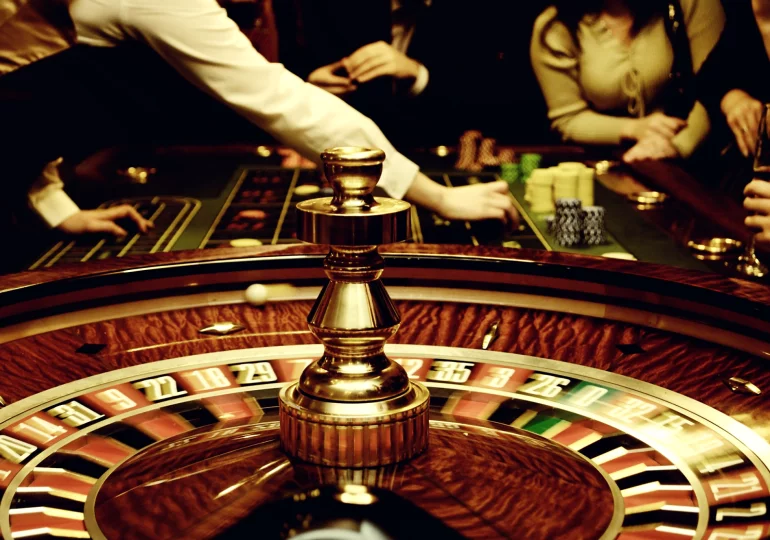
For enthusiasts of roulette, particularly European and French variations, understanding specific rules like La Partage and En Prison is crucial.
Unraveling La Partage and En Prison in Roulette
These rules are designed to mitigate losses on even-money bets when the ball lands on zero, significantly influencing the house edge and player strategy. While they share a common goal of offering players a second chance, their mechanics and implications differ.
How La Partage Works
The La Partage rule is a cornerstone of many French roulette tables. Its principle is straightforward: if a player places an even-money bet (such as Red/Black, Odd/Even, or High/Low) and the ball lands on zero (0), the player loses only half of their wager. The other half is returned to them.
This rule effectively reduces the house edge on these specific bets. Instead of losing the entire stake to the house when zero appears, players retain 50% of their bet, making these wagers more appealing.
- Applies to even-money bets only.
- Player loses half their stake when zero hits.
- Half of the bet is returned.
- Commonly found on French roulette tables.
How En Prison Works
The En Prison rule, also prevalent in French roulette, offers a slightly different mechanism when the zero hits. Instead of returning half the bet immediately, the player's even-money bet is "imprisoned" for the next spin.
- If the subsequent spin results in a win for the imprisoned bet, the player's original stake is returned, without any additional winnings.
- If the subsequent spin results in a loss, or if zero hits again, the entire imprisoned bet is lost.
Some variations of En Prison may allow for multiple "imprisonments" if zero hits consecutively, but this is less common and depends on the specific casino's rules.
- Applies to even-money bets only.
- Bet is "imprisoned" for the next spin when zero hits.
- If the imprisoned bet wins on the next spin, the original stake is returned.
- If the imprisoned bet loses or zero hits again, the entire bet is lost.
Similarities Between La Partage and En Prison
Despite their operational differences, La Partage and En Prison share fundamental similarities that benefit players focusing on even-money wagers:
- Both rules apply exclusively to even-money bets (Red/Black, Odd/Even, High/Low).
- Both rules come into play only when the ball lands on zero (0).
- Both aim to reduce the player's losses when the zero appears, effectively lowering the house edge on even-money bets compared to standard European roulette without these rules.
- They are primarily found in European and French roulette variations, distinguishing them from American roulette, which typically has a higher house edge due to the presence of both 0 and 00, and lacks these protective rules.
Differences Between La Partage and En Prison
While their objective is similar, the practical application of La Partage and En Prison presents clear distinctions that affect gameplay and immediate outcomes:
- Immediate Outcome vs. Delayed Resolution: With La Partage, the resolution is immediate: half your bet is returned. With En Prison, the resolution is delayed, requiring another spin to determine the fate of your wager.
- Risk Exposure: La Partage offers a guaranteed return of half your stake, limiting your immediate loss. En Prison keeps your entire bet at risk for an additional spin, meaning you could still lose the full amount if the next spin doesn't favor your imprisoned bet.
- Decision Making: La Partage offers a more straightforward outcome. En Prison introduces a moment of anticipation and a renewed chance to recover the full original stake, but also the risk of losing it all on the subsequent spin.
Impact on House Edge
The presence of La Partage or En Prison significantly impacts the house edge on even-money bets in roulette.
In standard European roulette, the house edge on all bets is approximately 2.70%. When La Partage or En Prison is applied to even-money bets, the effective house edge for these specific wagers is halved to approximately 1.35%.
This makes these rules highly desirable for players looking to optimize their roulette strategy and improve their long-term odds.
Choosing Your Roulette Table
When selecting a roulette table, especially in an online setting, it's beneficial to look for tables that explicitly state the inclusion of La Partage or En Prison rules. These variations offer a more player-favorable environment for even-money bets.
While both rules reduce the house edge by half on these specific wagers, your personal preference for immediate resolution (La Partage) versus a second chance (En Prison) might guide your choice of table.
| Name | Soft | Return to player | |||
|
|
98.65% | Play | |||
|
|
98.65% | Play | |||
|
|
98.65% | Play | |||
|
|
98.65% | Play | |||
|
|
98.65% | Play | |||
|
|
98.6% | Play | |||
|
|
97.3% | Play | |||
|
|
97.3% | Play | |||
|
|
97.3% | Play | |||
|
|
97.3% | Play |
Conclusion
Both La Partage and En Prison are invaluable rules for roulette players, particularly those focusing on even-money bets in European and French variations. While La Partage offers the immediate return of half your stake, En Prison provides a thrilling second chance to recover your entire wager.
Understanding these differences allows players to make informed choices, select tables that align with their preferred level of risk and pacing, and ultimately, enjoy a more favorable house edge, enhancing their overall roulette experience.























